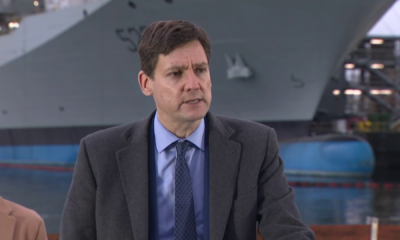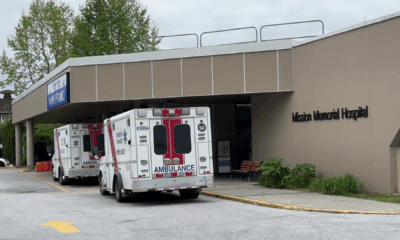Local News
B.C education system has ‘critical’ staffing shortages: BCTF

For parents and students in British Columbia, it may feel like things are going from bad to worse as a province-wide staffing crunch in classrooms hampers the education system.
Clint Johnston, president of the BC Teachers’ Federation (BCTF), tells 1130 NewsRadio he doesn’t have exact numbers of how many positions need to be filled, but confirms the situation has hit a desperate, crisis level affecting elementary, middle, and high schools.
“We hear it all the time. And I’m sure parents can tell you as well that their children have uncertified teachers in classes. We know our members lose their prep time, and they get shuffled around the school so they can cover gaps. It’s a critical shortage for sure.”
And the shortage doesn’t just apply to teachers, but to education assistants (EAs), as well.
“There’s not enough fully certified teachers in every classroom. There are not enough EAs in every classroom, and that makes the work of both of those groups more difficult because we work together,” asserted Johnston.
He admits some districts are leaning on parents to pick up the slack.
“It happens. There are districts that are pulling in, what we call ‘parking lot parents,’ and they are just individuals who are there and have the time and are willing to step in and fill a gap. But I think we’d all agree that’s not a solution either to do that for EAs or for teachers. It’s not a solution and it’s not what kids deserve in B.C.”
Investing more money into the public education system is one obvious solution, but being able to poach educators from other parts of the country appears to no longer be an option, says Johnston.
“It’s a crisis across the country, which has an impact because traditionally we have drawn educators and workers from other provinces and territories to B.C., but now that they’re depleted and people have more choice and can stay home and get the job they want, it’s having that pile-on impact.”
Johnston feels the onus is on the Ministry of Education to fix this.
“The fact we’re in a crisis means they should be looking at working through the summer to figure out solutions. We would certainly be happy to sit down at any table, attend any meeting that’s going to help our members get more support in the classroom and help students have what they need to learn.”
Johnston is also hopeful that more specialist roles can be filled.
“Francophone educators — there are not enough of those for children who are in French Immersion. My daughter right now is getting taught her French Immersion Science in English.”
Despite all these shortcomings, Johnston maintains the quality of education in B.C. is “high,” because those who are in the system, he says, are working to keep things on track.
“But at the same time, you can easily find parents whose children may be the ones that need a little extra support, which is what they’re supposed to get, and that is lacking,” he said.
“You talk to parents, and you’re going to hear stories about how their children are not getting what they deserve. Probably one of the ones you hear a lot is simply that they have children go through two or three or four teachers in a year, and given education is very relational, you need to develop a relationship with children.”
He’s hoping the province rolls out a big announcement over the summer to support a strategy to improve the system, but Johnston says he’s also realistic.
“Honestly, my gut says that classrooms will look, unfortunately, very similar in the fall. I don’t see anything on the horizon that’s really going to provide that much-needed, significant improvement.”
With files from Raynaldo Suarez.












